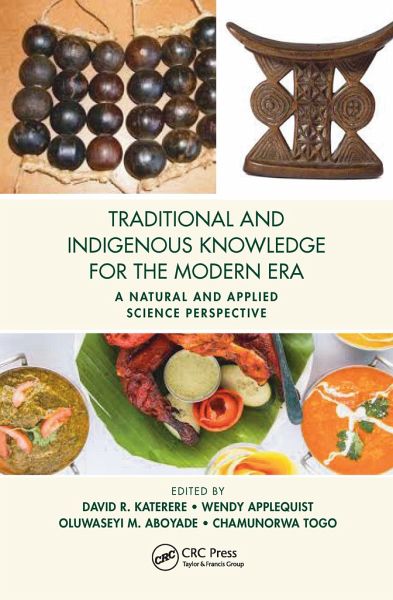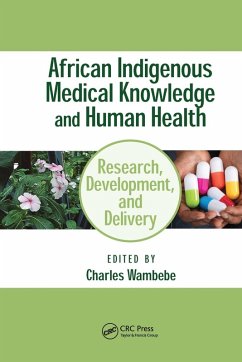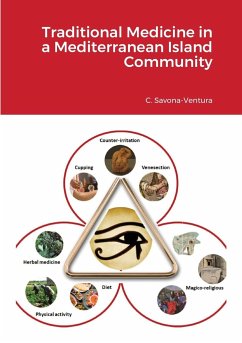
Traditional and Indigenous Knowledge for the Modern Era
A Natural and Applied Science Perspective
Herausgeber: Katerere, David R.; Aboyade, Oluwaseyi M.; Applequist, Wendy
Versandkostenfrei!
Versandfertig in 1-2 Wochen
62,99 €
inkl. MwSt.
Weitere Ausgaben:

PAYBACK Punkte
31 °P sammeln!
While there is talk of the Fourth Industrial Revolution, old and new challenges bedevil the world - climate change, nutrition, and health poverty being at the top of the list. In seeking solutions to these and other problems which afflict the modern era, it is worthwhile to look into our collective past, to the traditions and knowledges of our ancestors. Such knowledge continues to exist in many parts of the world, though now marginalized by homogenous, Eurocentric ontolology and epistemology. This book presents a compilation of reviews, case studies, and primary research attempting to locate ...
While there is talk of the Fourth Industrial Revolution, old and new challenges bedevil the world - climate change, nutrition, and health poverty being at the top of the list. In seeking solutions to these and other problems which afflict the modern era, it is worthwhile to look into our collective past, to the traditions and knowledges of our ancestors. Such knowledge continues to exist in many parts of the world, though now marginalized by homogenous, Eurocentric ontolology and epistemology. This book presents a compilation of reviews, case studies, and primary research attempting to locate the utility of traditional and Indigenous Knowledges in an increasingly complex world. It assembles chapter authors from across the world to tackle topics ranging from traditional knowledge-based innovations and commercialization, traditional medicine systems as practiced around the world, ethnoveterinary practices, and food innovation to traditional governance and leadership systems, among others. This book is an important resource for policymakers; scholars and researchers of cultural studies, leadership, governance, ethnobotany, anthropology, plant genetic resources and technology innovation; and readers interested in the history of knowledge and culture, as well as cultural activists and political scientists. Features: Unique combination of social science and anthropological aspects with natural science perspectives Includes summaries aimed at policymakers to immediately see what would be relevant to their work Combines case studies illuminating important lessons learned with reviews and primary data Multidisciplinary in the scope of the topics tackled and assemblage of contributors Global footprint with contributions from Africa, Europe, North America, Asia, and the West Indies ¿ David R. Katerere, Department of Pharmaceutical Sciences, Tshwane University of Technology, South Africa Wendy Applequist, William L. Brown Center, Missouri Botanical Garden, St Louis, Missouri Oluwaseyi M. Aboyade, Department of Pharmaceutical Sciences, Tshwane University of Technology, South Africa and Nutritica SA, The Innovation Hub, Pretoria, South Africa Chamunorwa Togo, The Innovation Hub, Pretoria, South Africa














